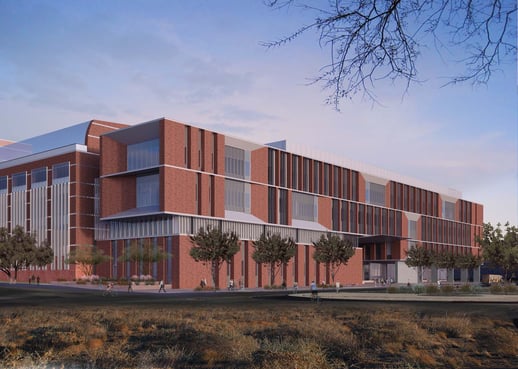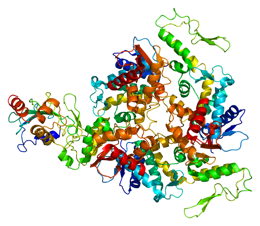Read More
Tags: Washington University St. Louis, Bioresearch funding, Biotechnology vendor show, Washington University, WUSTL, BioResearch Product Faire, Birth Defects, Pediatric Neurology, Translational Science
Though experts may disagree on when earth’s supply of fossil fuels will be exhausted, they do agree that it will happen eventually. After all, fossil fuels typically require millions of years of degradation to create. So the race for alternative biofuels is on.
The Department of Energy (DOE) recently awarded the Washington University, St. Louis (WUSTL) $3.9 in research funding to develop bacteria that manufactures renewable biofuels. WUSTL scientists are studying Rhodococcus opacus, a bacteria that grows on toxic compounds, using them as a source of food for the production of biofuels. The goal of this research project is to produce biofuels that can completely replace petroleum-based fuels.
Read MoreTags: Washington University St. Louis, Bioresearch funding, Biotechnology vendor show, Washington University, WUSTL, Renewable Energy, biofuels, laboratory equipment suppliers, NIH award, BioResearch Product Faire, Department of Energy, life scinece, life science labs, Biotechnology trade show, Reproductive Research
Construction of the new Bioscience Research Laboratories (BSRL) building at the University of Arizona, Tucson will soon be entering its final phase. This $107,5000,000 project began in December of 2015 and is expected to be completed in December of this year. The new four story, 100,000-square-foot biomedical building will be located along Cherry Ave, adjacent to the Keating BIO5 and the Medical Research Building. It will house imaging, the CLIA genetics core facility, informatics, and wet lab space.

(Image of the Bioscience Research Building courtesy of University of Arizona)
Read MoreTags: Biotechnology vendor show, University of Arizona Tucson Research, UAZ, Laboratory Equipment Supplier, UA, BioResearch Product Faire, science building, medical research building
The National Institute of Health (NIH) awarded Washington University in St. Louis over $1.4 million in grant funding to support their School of Medicine’s Diabetic Research Center. This award was administered through the National Institute of Diabetes and Digestive and Kidney Diseases (NIDDK) as it has been for the last 38 years. The funding will help support the Diabetic Research Center (DRC) and their life science labs. The DRC's mission is to “support and enhance research in diabetes and related metabolic diseases” through Biomedical Research Core services as well as the Pilot and Feasibility Program.
Read MoreTags: Washington University St. Louis, Bioresearch funding, Biotechnology vendor show, Washington University, WUSTL, Diabetes, NIH award, life scinece, life science labs, Biotechnology trade show
The National Institute of Aging has awarded a five year, $10.3 million grant to the University of Arizona, Tucson to fund research on why women are more susceptible to developing Alzheimer's Disease than men are. Lead researcher Dr. Roberta Diaz Brinton will be collaborating with other UA investigators, as well as with researchers at the University of Southern California with specialties including; neuroimaging and informatics, pharmacology, gerontology, and neuroradiology.
-MRI-1.png?width=248&name=Cerebral_amyloid_angiopathy_(CAA)-MRI-1.png)
(Image of brain affected byAlzheimer's courtesy of Wikimedia Commons)
Read MoreTags: Bioresearch funding, Biotechnology vendor show, University of Arizona Tucson Research, Alzheimer' Research, University of Arizona Tucson, UA
UC Davis Medical Center researchers have recently been awarded several grants to investigate promising treatments for Angleman Syndrome. Dr. David Segal, professor in the Department of Biochemistry and Molecular Medicine, has received over $1.2 million from the Foundation for Angelman Syndrome Therapeutics (FAST) to develop a potential treatment. Joe Anderson, PhD, assistant adjunct professor in the Department of Internal Medicine, received $500,000 from the same organization to pursue a different approach to developing a treatment for the genetic disorder. The university also received a $1.1 million grant from the California Institute for Regenerative Medicine (CIRM) in July, which brings the total for Angelman Syndrome grant funding to nearly $3 million. This puts UC Davis at the forefront of research into the disorder.
 (Image of UBE3A Protien courtesy of Wikimedia Commons)
(Image of UBE3A Protien courtesy of Wikimedia Commons)
Tags: Biotechnology vendor show, Biotechnology Vendor Fair, UC Davis - Medical Center, research grants, UC Davis, Bioresearch Grant, angelman syndrome

